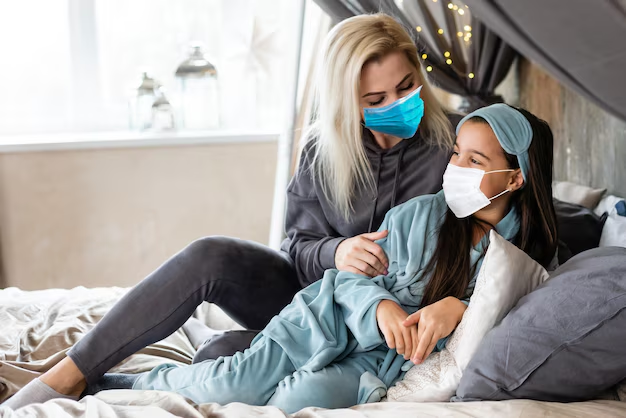Understanding and Managing Pneumonia in Children: What You Need to Know
As a parent or caregiver, few things are more distressing than seeing your child unwell, particularly if they're battling something like pneumonia. This common but serious illness can affect children regardless of age, and understanding how to navigate its challenges is crucial. In this comprehensive guide, we'll explore everything from recognizing symptoms to supportive care measures and when to consult with healthcare professionals.
What Is Pneumonia?
Pneumonia is an infection that inflames the air sacs in one or both lungs, which may fill with fluid or pus. This can lead to symptoms such as coughing, fever, and difficulty breathing. In children, pneumonia can be caused by viruses, bacteria, or fungi, with viral pneumonia being more prevalent.
Recognizing Symptoms of Pneumonia in Kids
Knowing the symptoms is the first step in addressing pneumonia effectively:
- Coughing: This may produce greenish, yellow, or even bloody mucus.
- Fever: Often high, accompanied by shivering or chills.
- Breathing difficulties: Rapid or shallow breathing and shortness of breath.
- Chest pain: Often worsens during coughing or breathing deeply.
- Fatigue and weakness: General malaise and reduced energy levels.
- Poor appetite and loss of interest in daily activities.
For infants and younger children, symptoms might be less specific, including:
- Grunting or wheezing sounds
- Bluish tint around the lips or nails
- Unusual fussiness or lethargy
Diagnosing Pneumonia
If your child displays any of the above symptoms, it is crucial to contact a healthcare provider. Pediatricians often diagnose pneumonia through:
- Physical exams: Listening for abnormal lung sounds with a stethoscope.
- Chest X-rays: To confirm the presence and extent of the infection.
- Blood tests: To identify infection types and severity.
- Pulse oximetry: Measuring oxygen levels in the blood.
Treatment Options for Pediatric Pneumonia
While understanding pneumonia's nature is important, knowing the treatment avenues can bring peace of mind and aid in recovery.
At-Home Care and Support
Home care plays a vital role in helping children recover from pneumonia. Implement these supportive measures:
- Ensure rest: Allow your child ample time to relax and recover. Keep their activities minimal to conserve energy.
- Stay hydrated: Encourage fluid intake, including water, broth, and electrolyte solutions. This helps thin mucus and prevents dehydration.
- Monitor fever: Utilize child-safe over-the-counter medications like acetaminophen or ibuprofen for fever management, focusing on dosage guidelines.
- Comfort breathing: Use a cool-mist humidifier in their room to maintain moisture in the airways. Elevate the child's head with an extra pillow to assist breathing.
- Nutritious food: Offer small, frequent meals if appetite permits, ensuring they're easy to digest and nutrient-rich.
Medical Treatments
Pneumonia can be a daunting condition, especially if it requires intervention beyond home care. Treatment largely depends on the pneumonia type:
- Bacterial pneumonia: Antibiotics are prescribed to tackle the bacterial infection. It's crucial to follow the full course as prescribed, even if symptoms improve.
- Viral pneumonia: Antibiotics won't work, and antiviral medications are not always used. Supportive care remains the cornerstone.
Hospitalization may be necessary if symptoms are severe, especially for infants and young children. This may involve intravenous antibiotics, supplemental oxygen, or respiratory therapies.
Alternative Therapies: A Cautious Approach
Some families explore alternative or complementary therapies, such as:
- Herbal remedies: Used for symptom relief, but these should only supplement traditional treatments and under pediatric guidance.
- Breathing exercises: Sometimes suggested to aid lung function, especially post-recovery.
Always discuss any alternative therapy options with your healthcare provider to ensure they do not interfere with necessary medical treatments.
Preventing Pneumonia
Prevention is key to protecting your child from pneumonia:
- Vaccinations: Ensure your child receives all recommended immunizations, notably the pneumococcal and flu vaccines.
- Hygiene: Encourage regular handwashing to reduce the spread of germs.
- Avoid smoke exposure: Cigarette smoke can increase susceptibility to respiratory infections. Keep your child's environment smoke-free.
- Healthy lifestyle: Promote a balanced diet, regular physical activity, and adequate sleep to strengthen immune defense.
Addressing Common Myths
There are numerous misconceptions about pneumonia. Here are a few to keep in mind:
- Only a winter illness: Pneumonia can strike year-round.
- Contagious nature: Pneumonia itself isn't contagious, but its causes like viruses and bacteria can be.
- Pneumonia always requires antibiotics: Only bacterial cases do, demonstrating the importance of accurate diagnosis.
When to Seek Medical Help
Understanding when to seek immediate medical assistance is crucial:
- Persistent high fever or worsening symptoms
- Lethargy or difficulty waking
- Bluish skin coloration indicating potential oxygen deprivation
- Struggling to breathe or rapid breathing rates
Never hesitate to reach out to your pediatrician or emergency services if you're worried about your child's health. Prompt medical intervention can prevent complications and foster better outcomes.
Empowering Your Caregiving
Armed with knowledge and practical strategies, you're better equipped to assist your child in navigating pneumonia's challenges. From recognizing symptoms early to maintaining diligence with treatment and prevention, your involvement is instrumental.
⭐ Pneumonia Tips & Takeaways ⭐
- 📋 Symptoms: Watch for coughing, fever, and difficulty breathing.
- 🏠 Home care: Rest, hydration, and humidification are key.
- 💊 Medical help: Seek if symptoms worsen or include breathing difficulty.
- 🥼 Prevention: Vaccinations and good hygiene are essential.
- 🧘♀️ Alternative care: Consult your doctor before considering non-traditional methods.
Balancing cautious observation with proactive care can make a substantial impact on your child's recovery and overall well-being.

Related Articles
- a Typical Pneumonia
- Can a Cold Turn Into Pneumonia
- Can a Sinus Infection Turn Into Pneumonia
- Can Amoxicillin Cure Pneumonia
- Can Amoxicillin Treat Pneumonia
- Can Baby Oil Cause Pneumonia
- Can Bronchitis Turn Into Pneumonia
- Can Covid Turn Into Pneumonia
- Can Doxycycline Treat Pneumonia
- Can Flu Turn Into Pneumonia
